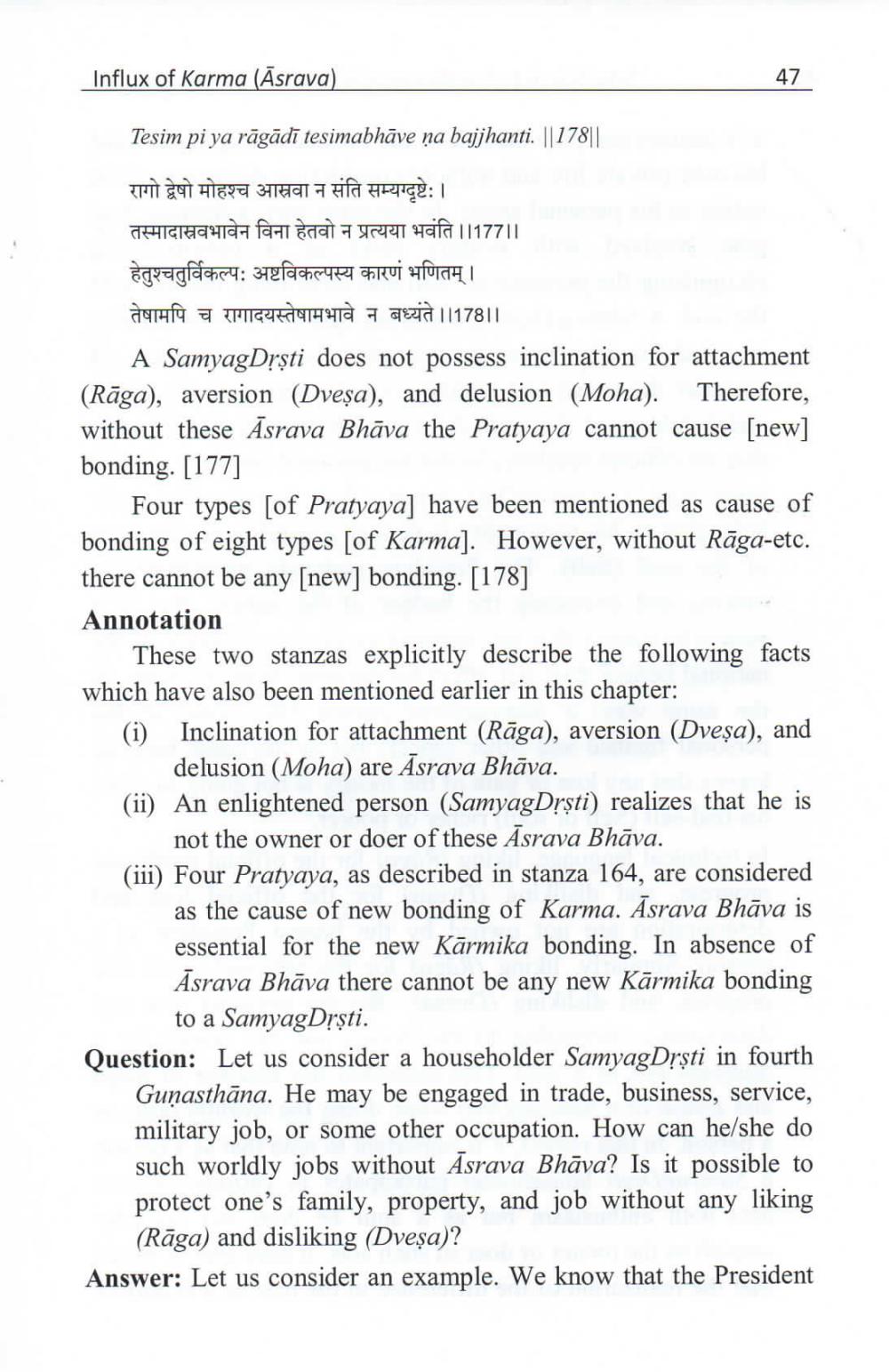________________
Influx of Karma (Asrava).
47
Tesim pi ya rāgādī tesimabhāve na bajjhanti. ||178|| रागो द्वेषो मोहश्च आस्रवा न संति सम्यग्दृष्टेः।
Glaidh fahr dat h et afat 1117711 हेतुश्चतुर्विकल्प: अष्टविकल्पस्य कारणं भणितम् । 949 TIGURITYTO 7 qezid 1117811
A SamyagDrşti does not possess inclination for attachment (Rāga), aversion (Dveșa), and delusion (Moha). Therefore, without these Āsrava Bhāva the Pratyaya cannot cause [new] bonding. [177]
Four types [of Pratyaya] have been mentioned as cause of bonding of eight types [of Karma]. However, without Rāga-etc. there cannot be any [new] bonding. [178] Annotation
These two stanzas explicitly describe the following facts which have also been mentioned earlier in this chapter: (i) Inclination for attachment (Rāga), aversion (Dveșa), and
delusion (Moha) are Āsrava Bhāva. (ii) An enlightened person (SamyagDrști) realizes that he is
not the owner or doer of these Āsrava Bhāva. (iii) Four Pratyaya, as described in stanza 164, are considered
as the cause of new bonding of Karma. Āsrava Bhāva is essential for the new Kārmika bonding. In absence of Āsrava Bhāva there cannot be any new Kārmika bonding
to a SamyagDrști. Question: Let us consider a householder SamyagDrști in fourth
Guņasthāna. He may be engaged in trade, business, service, military job, or some other occupation. How can he/she do such worldly jobs without Asrava Bhāva? Is it possible to protect one's family, property, and job without any liking
(Rāga) and disliking (Dveșa)? Answer: Let us consider an example. We know that the President




